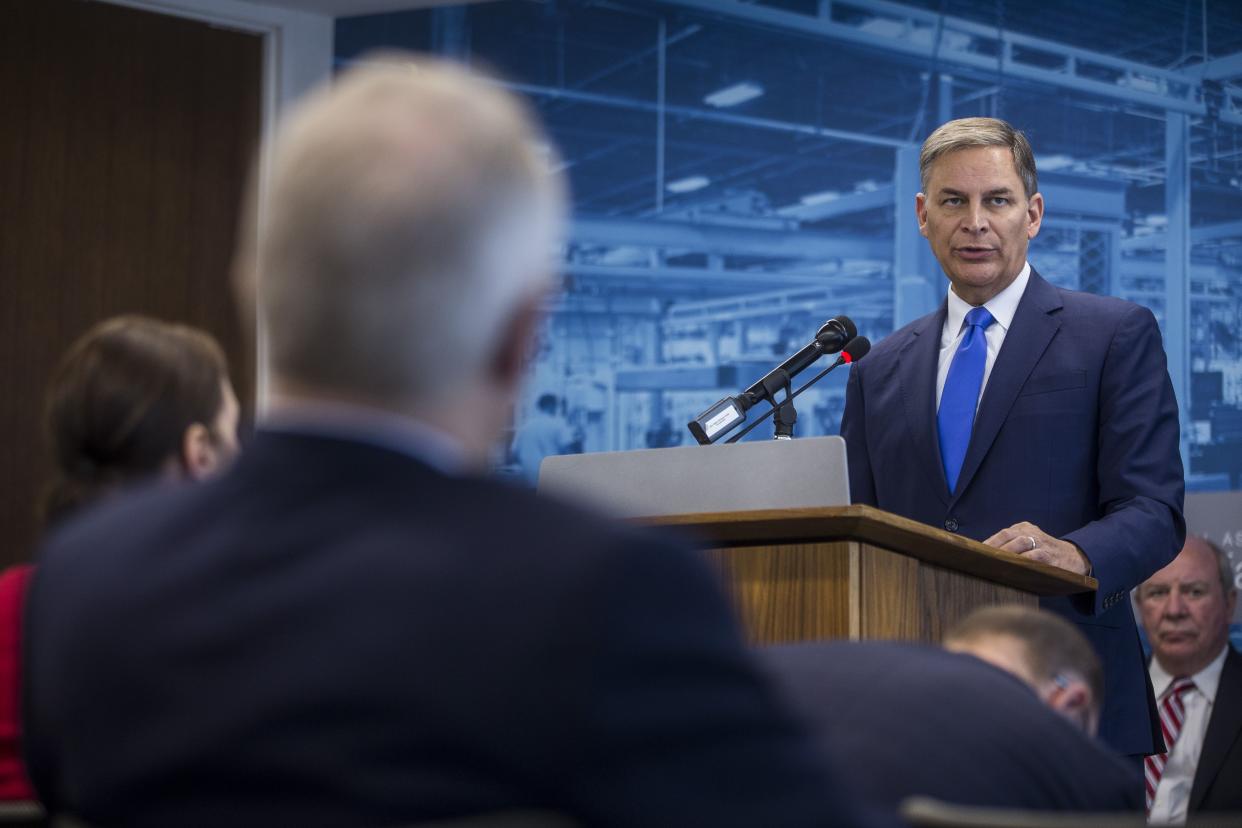Biden issues executive order to boost competition, crack down on big business
President Biden issued an executive order Friday that aimed to boost competition and raise wages by cracking down on what he described as a corporate consolidation of the U.S. economy that is harming consumers, stifling innovation and exploiting workers.
The wide-ranging order contains a total of 72 actions and recommendations, many of which are more aspirational than immediately impactful.

However, Biden said the order — which includes a call for banning noncompete agreements to increase wages and make it easier for workers to find better jobs — could over time reverse an entrenched economic trend that allows “big players” to “change and charge whatever they want and treat you however they want.”
“Look I’m a proud capitalist ... I know America can’t succeed unless American business succeeds, but let me be very clear: Capitalism without competition isn’t capitalism. It’s exploitation,” Biden said before signing the order at the White House, naming the tech, agricultural, airline and pharmaceutical industries as some sectors of the economy where the trends are playing out. “For too many Americans that means accepting a bad deal for things that you can’t go without.”
The order is part of Biden’s embrace of a pro-labor agenda and follows in the footsteps of American presidents seeking to break up corporate power via anti-trust executive actions and legislation.
The noncompete component of Biden’s order is one of its most significant.
According to a White House fact sheet, upward of 60 million Americans are being prevented from moving into better-paying jobs because their contracts include noncompete clauses. For example, Biden noted that such clauses are common for low-wage workers in the fast food industry.
“Come on, are there trade secrets about what’s inside the patty?” Biden said.
Biden’s order instructs the Federal Trade Commission to ban or sharply limit the use of such clauses. It also encourages the FTC to beef up anti-trust guidance barring employers from collaborating to keep wages and benefits packages low.
In the tech sector, Biden’s measure calls for greater scrutiny of behemoths like Facebook, Google, Apple and Amazon, especially over the way in which they conduct mergers and usurp competitors.

The order features similar directives for strengthened oversight in other major American industries.
There are also a range of consumer-focused provisions in Biden’s action, including a push for a federal rule change that would allow for hearing aids to be sold over the counter at drug stores and a proposed ban on hefty early termination fees by internet providers.
On yet another front, Biden’s sweeping order calls on the Transportation Department to require airline companies to refund baggage fees in the event that flights are delayed or services aren’t provided as advertised.
Progressive advocates hailed Biden’s order as a step in the right direction.
But free-market business groups were not pleased.
“Some of the actions announced today are solutions in search of a problem,” said Jay Timmons, president and CEO of the National Association of Manufacturers. “They threaten to undo our progress by undermining free markets and are premised on the false notion that our workers are not positioned for success.”

Some of the proposed rule changes and calls for federal actions are likely to draw court challenges, with large corporations believing they could see their bottom line suffer as a result of Biden’s action.
After signing the order, Biden touched briefly on a phone call he held earlier in the day with Russian President Vladimir Putin.
Biden told reporters that he informed Putin that the U.S. will expect his government to take action if hackers in Russia launch ransomware attacks against American companies and federal agencies, regardless of whether the Kremlin is directly responsible.
The call with Putin comes on the heels of Russian hackers targeting U.S. interests in a string of debilitating cyberattacks in recent months, including one that shut down the Colonial Pipeline that supplies nearly the entire East Coast with fuel.
Asked if Putin will face consequences should attacks like that continue, Biden curtly replied, “Yes.”
With News Wire Services
